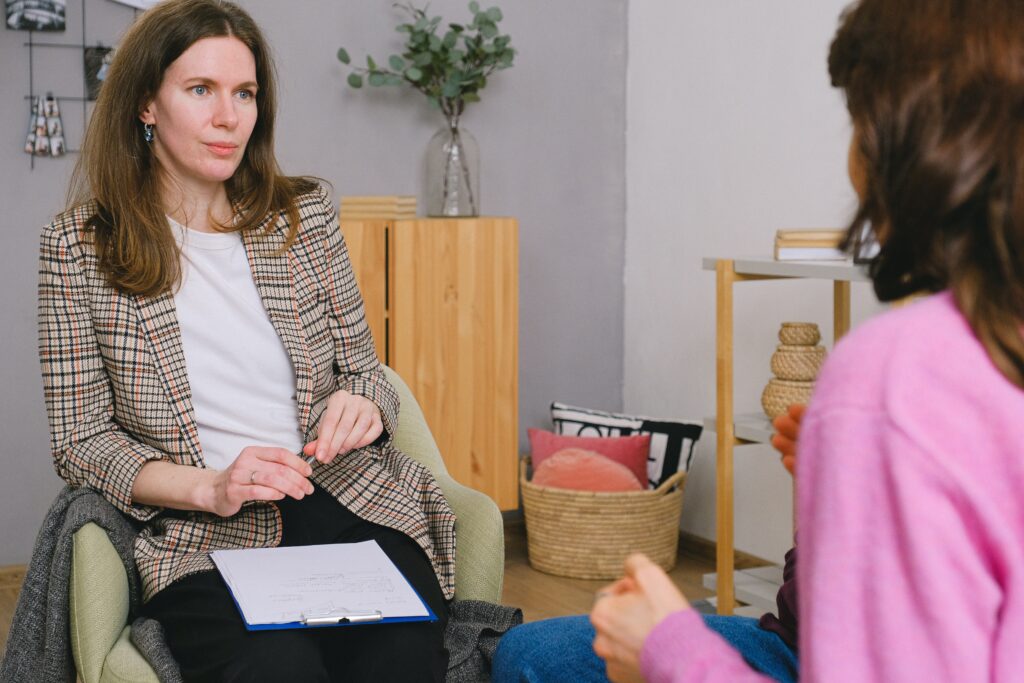1. The unconscious mind exists.
On the simplest level – are you thinking about breathing or does it just happen? OK, that was playful, but much of our life is automated, and part of what is automated, is how we organize our daily experience. This thought is frightening to many people. However, our unconscious mind processes and colors many of our life events through a filter that is outside of our awareness.
2. It is outside of our awareness.
By definition, the unconscious is outside of our awareness. Even people familiar with their unconscious mind are often delighted/troubled by things that they discover from their unconscious.
3. Often we have an unconscious narrative.
We often have a narrative or story we tell ourselves (unconsciously – outside of our awareness) about our life. “I’m a victim.” “I’m a winner.” “I have to please others, but then I get resentful that I am so compelled to please others.”
4. This narrative organizes a great deal of our experience of the world.
This is true even though we are not aware of this narrative. We use this story as a road map, but one we are not aware of using.
5. We See What We Expect to See.
Part of this organization goes through a process of projection and then re-internalizing what we think we have perceived. For example, the Rorschach test (the famous ink blot test) is a series of ambiguous cards. We organize the ambiguous stimulus of the card according to our psychology, and then – here’s the amazing part – we become somewhat convinced that in fact, we DO see the blot that way. (FYI – the Rorschach has been thoroughly studied and meticulously documented for decades. In the right hands, it is a remarkable tool). Back to the implications, however: think about this socially. We quickly sum up a new person we meet and then, we can become convinced of our initial impression – based at least in part of this process of projection and re-internalization (as well as our preconceptions and other factors).
6. Most of the Classic Disney movies address the unconscious concerns of children.
One example of the unconscious mind is that it has ongoing concerns. For example, children often have a certain number of predictable concerns. For example:
- what if my parents died? (Bambi)
- Could there be a better life somewhere else? (Little Mermaid)
- These are not my ‘real’ parents; my real ones would be much better (Cinderella)
- What if I was in charge, the King even? (One aspect of the Oedipus story). The only problem is to become King; my father would have to die (Lion King)
- Bonus – the original Star Wars movies (episodes 4, 5 and 6) are an Oedipal story as well – with lots of defensive maneuvers. (I have to kill my Dad because he is evil, I will be a hero. I will not actually kill him, but we will fight. My love will be so reparative, it will get rid of all his evil, and we will love each other).
7. Speaking of psychological defenses, they are all unconscious.
Our psychological defenses are little (and sometimes not so little) ways we fool ourselves into avoiding thoughts, feelings and/or realizations which otherwise might be very difficult to tolerate. “I didn’t gain weight over the holidays; I washed my clothes in hot water. Also, they are making clothes a little smaller these days.” Defenses have to be unconscious; otherwise, they would not work. Try to fool yourself while you are standing on the scale. See?
8. Sometimes our unconscious tells us things about our inner world that we didn’t want to know.
Ever forget your office keys on a Monday? Kinda hard to get back to work?
9. Our early interactions with our caretakers often have a profound effect.
Our early experiences are formative in how we unconsciously experience other people, our romantic partner, what it means to be:
- in a romantic relationship
- in a loving relationship
- a student
- a parent
- someone in authority
- someone who needs help, etc.
Also, how we feel about ourselves is largely influenced by these early relationships.
10. Freud is quoted as saying his job was to make the unconscious conscious.
That’s a misquote. The unconscious will by definition remain out of awareness. However, we can become aware of our unconscious thoughts and feelings indirectly, like through dreams, associations, daydreams, actions we take, slips of the tongue (‘Freudian slips’) as well as through feedback from a trained professional. One major task of therapy is to help a person become more comfortable with their self – including becoming familiar with and then comfortable with what’s going on in the unconscious. Imagine cupping your two hands together to hold water. If you hold the water in that way, you might lose some, but mostly you will keep it. Now imagine anxiously trying to ensure no water escapes by holding on tightly, making two fists. The water comes out, outside of your control. Analogously, if we try too hard to keep things out of our awareness, we paradoxically are more likely to have issue leak out.
11. Things we cannot tolerate ‘knowing’ (thinking or feeling) often get expressed in action
Think of the idea of the “Freudian Slip.” We have thoughts, feelings and even narratives outside of our conscious awareness. Sometimes these are just harmless little things like forgetting a task which was dreaded. Other times, it can be much more serious and lead to things such as behaviors which might cause one to get fired, or even lead one to have an affair.
Imagine a person who has trouble with authority. (Tying in numbers 3 and 4 above about the unconscious narrative) Perhaps a parent was harsh or unreasonable, or maybe even the only time the parent paid any attention was to reprimand the person as a child. That person, now as an adult, may unconsciously exhibit behaviors designed to draw that parent into the same interaction. However, now that parent is represented in reality by the boss or a teacher. This unconscious narrative, unresolved and hard to tolerate in conscious awareness begins to find expression – being lived out in the present moment. It seems as if this is all about the present situation, but if one looks closer – they will find a pattern. It is this pattern and the unresolved unconscious issues which need attention to prevent the repetition of this pattern in the future.
Learning to have a curiosity about our mind and then coming to accept ourselves are important parts of therapy. These are important in learning to be comfortable living in our skins.




